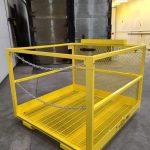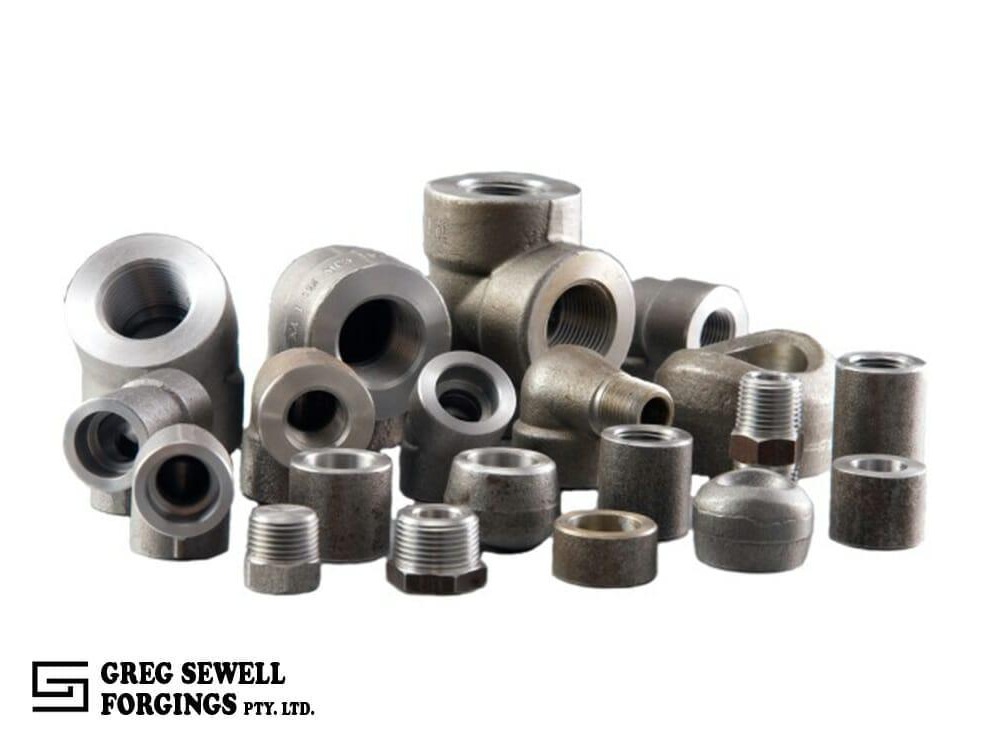Closed die forging is an advanced metalworking process for high-strength, precision-engineered components. This process forms the metal into specific shapes and properties by forcing molten metal under high pressure in a closed mould. Industries such as aerospace, automotive, and manufacturing often utilise closed-die forging.
What is Closed Die Forging?
Closed die forging, also known as impression die forging, involves taking a piece of heated metal and placing it into a die with a specific cavity shape. This metal is pressed down with a press or hammer into the mould cavities, whereby it is formed into the die. This way, we can ensure the forged components have consistent material properties across their volume, high mechanical strength, and minimum waste.
The Benefits of Closed-Die Forging
Closed die-forging helps to reinforce the metal, resulting in a higher strength and toughness element and is especially useful in high-stress situations. Most of these additives are applied using precise moulds, as this is the only way to secure high accuracy and consistency, which are crucial for applications with tight tolerances and superb finishes. Moreover, this method helps reduce material waste as the die is used to shape the metal directly instead of requiring extensive machining, decreasing overall production costs. Its versatility allows it to work with steel, aluminium, or titanium, which can be used to create complex shapes and dimensions for different sectors.
The Closed-Die Forging Process
Closed die forging involves heating the appropriate metal material to a specific forging temperature and preparing it as either performs or billets. The billets are inserted into a precisely machined die constructed from rigid materials that can withstand the pressures of the forging process. The heated metal is placed in a die cavity, and pressure is applied using a press or hammer, which makes the metal flow into the shape of the die. The excess material is then trimmed where necessary. Following forging, the component is cooled, and in case achievable, it may contain extra heat treatments to improve strength or toughness properties. After it has been forged, the finished component is machined to the final required dimensions and surface. Additionally, every step of the way was thoroughly inspected to ensure that it met all requirements for quality control.
Applications of Closed Die Forging
Different sectors use closed-die forging to produce high-strength and precision components. Aerospace uses it to make critical parts with strength and reliability requirements, such as turbine blades, landing gear components, and structural elements. Closed-die forging is used in the automobile industry, especially for engine, transmission and suspension parts, as they must be highly durable and ensure high-level stability. One thing that is undoubtedly forged are components in harsh and high-stress conditions, like drilling gear, valves, pressure vessels or others. Furthermore, closed die forging takes part in manufacturing robust machinery parts, tools and other components to ensure their efficiency over a longer time.
Custom Metal Fabrication and CNC Machining Services
- Forged Custom Metal Fabrication: Closing die forging can also be integrated with custom metal fabrication for components manufactured as required. Forged parts can be custom fabricated beyond these to achieve more specific shapes, sizes and features, making this method more versatile in the long run.
- CNC Machining Services: Following forging, parts frequently require an additional machining process to meet final dimensions and tolerances. CNC machining services is crucial to improving finished forged parts to conform to appearance and quality standards.
- Upset Forging: If you have to increase the diameter of a metal billet, you can do it by compressing it along its length using this technique. It is utilised to method better parts or to encode flanges or collars up the way toward fashioned elements.
- Hot Closed Die Forging: The metal is heated to high temperatures before the forging process in this hot closed-die forging. Because hot closed-die forging increases the material flow, it can create more extensive and complex parts.
The Advantages of Integrating Forging with CNC Machining
Closed die forging and CNC machining provide numerous advantages when working together to produce exact, quality components. Having these things integrated means parts are forged to shape and machined to meet perfect standards. Let us take a closer look at the benefits of this integrated approach:
- Enhanced Precision: CNC machining can achieve tighter dimensions and tolerances usually needed for intricate parts. The CNC technology for grinding forged components can deliver accurate dimensions and surfaces that meet high-quality requirements.
- Complex Geometries: CNC machining enables additional refinement and the insertion of complex features or details that may not be possible during the forging process alone, even if closed die forging may generate intricate forms. This capability is handy for making parts with patterns, holes, or threads.
- Efficient Production: Combining the B-side with forging can enable lean manufacturing by minimising the need for secondary operations or handwork. As a result, manufacturing workflows are more cost-effective and have shorter turnaround times, which are especially useful in high-volume production.
- Cost Savings: Although closed-die forging and CNC machining are costly manufacturing processes, this combined process can also be cost-competitive by reducing material waste and the extra processing steps. Efficient integrated processes do allow for a reduction in overall production costs while maximising resource use.
- Quality Assurance: By integrating, it is easier to monitor and control both processes, thus increasing the overall quality of the product as forging and machining can be easily adjusted to meet final component specifications. This integration provides several checkpoints at the various stages of production, with inspection and testing at all levels to ensure that each component is capable of withstanding stringent requirements.
Conclusion
Closed die forging is a quality-driven process that ensures precision, strength, and efficiency for various industrial applications. Understanding the advantages, process, and scope of closed-die forging allows manufacturers to make superior products in custom metal fabrication. CNC machining services in Melbourne and other techniques ensure that the forged components meet the highest performance and reliability standards.










